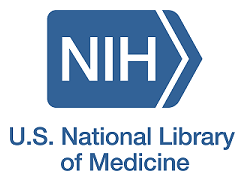

To Your Health: NLM update Transcript
Teen lesbian, gay, bisexual prevalence and health risks: 02/21/2017

Greetings from the National Library of Medicine and MedlinePlus.gov
Regards to all our listeners!
I'm Rob Logan, Ph.D., senior staff, U.S. National Library of Medicine (NLM).
Here is what's new this week in To Your Health - a consumer health oriented podcast from NLM - that helps you use MedlinePlus to follow up on weekly topics.
New estimates suggest there are 1.3 million lesbian, gay, and bisexual teens in the U.S. who experience more health risks than their heterosexual peers, finds an illuminating viewpoint recently published in the Journal of the American Medical Association.
Specifically, the viewpoint's three authors note a recent national survey, which is the first to provide comprehensive information, estimates 321,000 high school students are gay or lesbian. The authors add that an estimated 964,000 high school students are bisexual.
Interestingly, the viewpoint's authors, who are researchers from the U.S. Centers for Disease Control and Prevention (CDC), note an estimated 514,000 high school students are not sure about their sexual identity.
In terms of health risks, the authors explain about 34 percent of lesbian, gay, and bisexual teens report they have been bullied at school compared to about 19 percent of heterosexual (or straight) peers. Similarly, about 28 percent of lesbian, gay, and bisexual teens report they have been bullied on the Internet compared to about 14 percent of heterosexual (or straight) peers.
Other salient discrepancies in health risk experiences include: 22 percent of lesbian, gay, and bisexual teens report they experienced sexual dating violence compared to about nine percent of straight peers. About 18 percent of lesbian, gay, and bisexual teens report they experienced physical dating violence compared to about eight percent of heterosexual (or straight) peers.
The authors explain the comparative differences in health risks also extend to tobacco, alcohol, and marijuana use. For example, about 19 percent of lesbian, gay, and bisexual teens report they smoke cigarettes compared to about 10 percent of straight peers. About 32 percent of lesbian, gay, and bisexual teens report they smoke marijuana compared to about 21 percent of straight peers. About 40 percent of lesbian, gay, and bisexual teens report they drink alcohol compared to about 32 percent of straight peers.
Among some related findings, about 29 percent of lesbian, gay, and bisexual teens report they have attempted suicide compared to only about six percent of straight teens.
The authors explain the new findings regarding prevalence and health risks among lesbian, gay, and bisexual teens occurred because of some new questions that were recently added to the CDC's Youth Risk Behavior Surveys. The authors explain the CDC's Youth Risk Behavior survey began in 1995, so the addition of new questions yields previously unavailable national information about lesbian, gay, and bisexual teenagers.
The authors conclude the findings are (and we quote): 'an important starting point for accelerating action to improve the health and well-being of the estimated 1.3 million (lesbian, gay, and bisexual) high school students in the United States' (end of quote). While the authors note (and we quote): 'no simple solution exists to address the intersection of stigma, discrimination, and risk behaviors' (end of quote), the authors note there are strategies parents, educators, health care professionals, and public health officials can take to help lesbian, gay, and bisexual teens survive and thrive.
Meanwhile, the American Academy of Pediatrics provides a guide about better health for gay and lesbian teens within the 'teenagers' section of MedlinePlus.gov's gay, lesbian, bisexual, and transgender health topic page.
The Nemours Foundation provides a thoughtful guide about 'coming out' that is written for teens within the 'teenagers' section of MedlinePlus.gov's gay, lesbian, bisexual, and transgender health topic page.
MedlinePlus.gov's gay, lesbian, bisexual, and transgender health topic page also provides links to the latest pertinent journal research articles, which are available in the 'journal articles' section. Links to relevant clinical trials that may be occurring in your area are available within the 'clinical trials' section. You can sign up to receive updates about gay, lesbian, bisexual, and transgender health as they become available on MedlinePlus.gov.
To find MedlinePlus.gov's gay, lesbian, bisexual, and transgender health topic page, please type 'LGBT health' in the search box on MedlinePlus.gov's home page, then, click on 'gay, lesbian, bisexual, and transgender health (National Library of Medicine).'
Overall, the viewpoint reports some sobering findings and illustrates how adding new questions to a national survey of teenage health behaviors yields some evidence-based insights about contemporary American society.
Before I go, this reminder... MedlinePlus.gov is authoritative. It's free. We do not accept advertising .... and it is written to help you.
To find MedlinePlus.gov, just type 'MedlinePlus.gov' in any web browser, such as Firefox, Safari, Chrome, or Explorer, on any platform.
We encourage you to use MedlinePlus and please recommend it to your friends. MedlinePlus is available in English and Spanish. Some medical information is available in 48 other languages.
A written transcript of recent podcasts is available by typing 'To your health' in the search box on MedlinePlus.gov's home page.
The National Library of Medicine is one of 27 institutes and centers within the National Institutes of Health. The National Institutes of Health is part of the U.S. Department of Health and Human Services.
A disclaimer — the information presented in this program should not replace the medical advice of your physician. You should not use this information to diagnose or treat any disease without first consulting with your physician or other health care provider.
It was nice to be with you! Please join us here next week and here's to your health!


































No hay comentarios:
Publicar un comentario